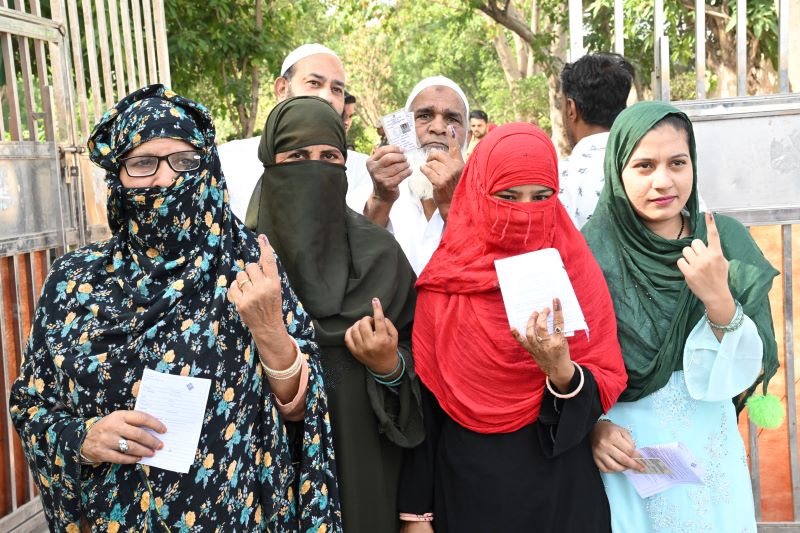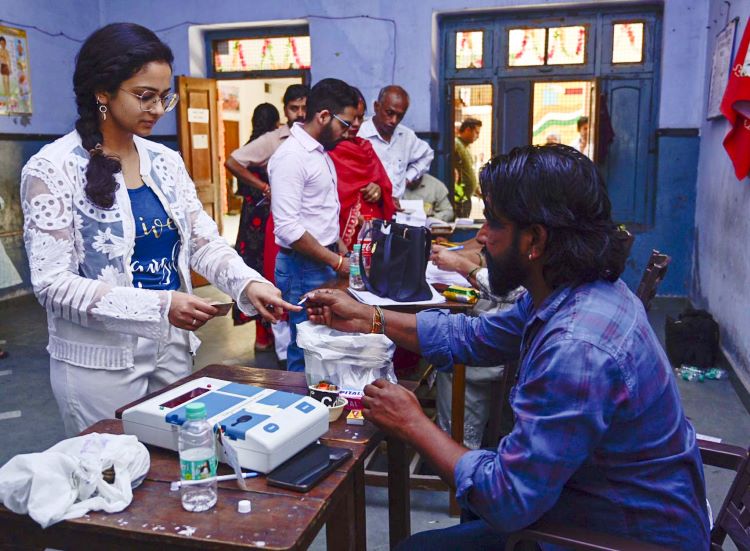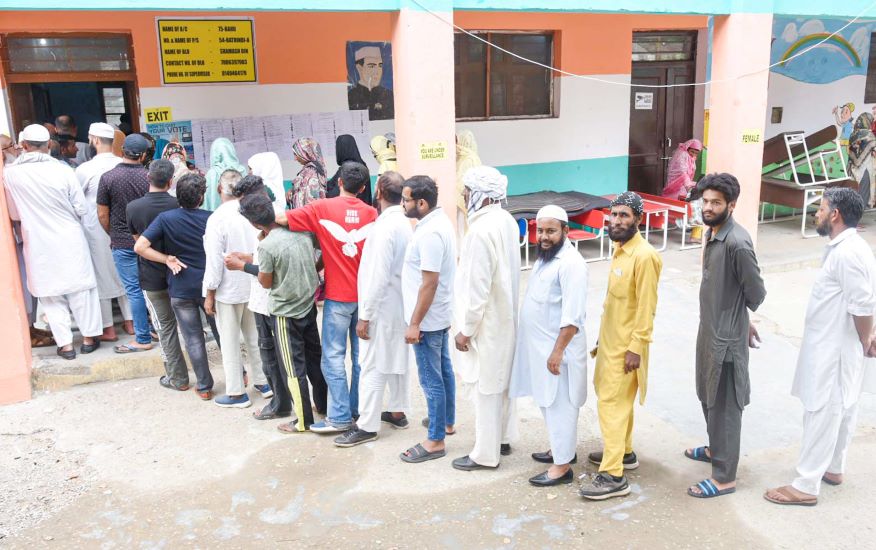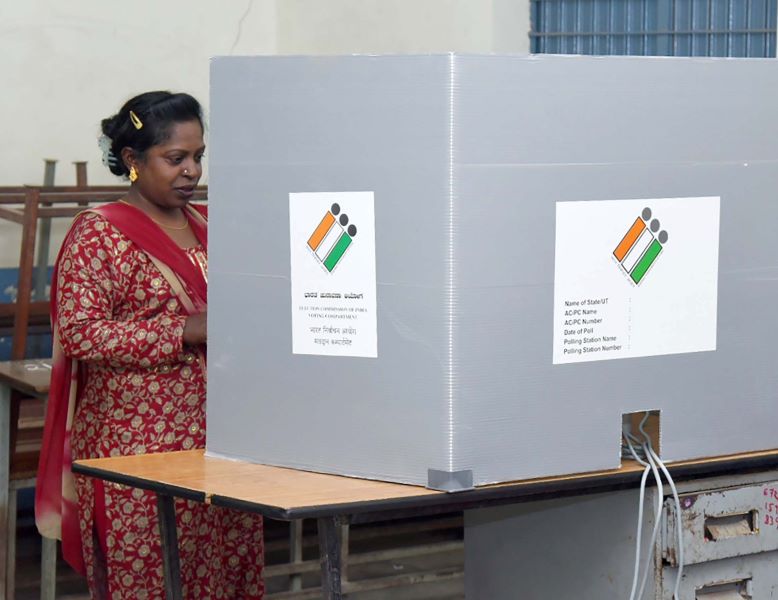Voting concludes in 88 constituencies with 61% turnout by 5 pm

New Delhi: Voting in 88 electoral constituencies spread across 13 states and Union Territories took place on Friday amid a furious controversy between the Congress and the BJP over their manifestos and the issue of inheritance tax. In Kerala, Rajasthan, and Tripura, the polling has concluded.
By 5 pm, an average turnout of 60.7 percent was recorded.
The second phase of polling included 20 seats in Kerala, 14 seats in Karnataka, 13 seats in Rajasthan, eight seats each in Uttar Pradesh and Maharashtra, seven seats in Madhya Pradesh, five seats each in Assam and Bihar, three seats each in West Bengal and Chhattisgarh, and one seat each in Jammu and Kashmir, Manipur, and Tripura.
 A polling official marks a voter with indelible ink (Image credit: PIB)
A polling official marks a voter with indelible ink (Image credit: PIB)
The heavyweights in this phase included Rahul Gandhi and KC Venugopal from the Congress, Bhupesh Baghel, and Vaibhav Gehlot (son of Ashok Gehlot), as well as Union Minister Rajeev Chandrasekhar from the BJP.
 People waiting for their turn to cast their votes in Jammu (Image credit: PIB)
People waiting for their turn to cast their votes in Jammu (Image credit: PIB)
Contests that would be watched closely included Rajeev Chandrasekhar versus Shashi Tharoor in Thiruvananthapuram, and actors Hema Malini and Arun Govil from the iconic 1980s serial Ramayan, along with senior BJP leader Tejasvi Surya and Lok Sabha Speaker Om Birla.
 A woman casting vote in Bengaluru, Karnataka (Image credit: PIB)
A woman casting vote in Bengaluru, Karnataka (Image credit: PIB)
Further south, the BJP is striving to disrupt the established bipolar politics of Kerala. The party aims to make an entry into the state by fielding Union ministers Rajiv Chandrasekhar and V Muraleedharan.
In Wayanad, a stronghold of the Congress for over two decades, the BJP has pitted its state unit president K Surendran against Rahul Gandhi.
For the Opposition, Kerala represents a beacon of hope. Despite the Left and the Congress engaging in fierce competition in the southern state, a victory by either party will bolster the overall tally of the Opposition in India.
Kerala stands out as one of the few states that have never elected a BJP member to parliament.
With the northern, western, and northeastern regions of India largely under its belt, the BJP is now eyeing expansion in the south and east as part of its ambition to secure 370 seats.
In the 2019 elections, the party clinched 303 seats, with the majority coming from the Hindi heartland and both new and old strongholds, including Gujarat and the northeast.
Meanwhile, the Congress claims that it will make improvements to its performance compared to 2019.
Following the first phase of the election, the party’s confidence has grown, particularly in Rajasthan and western Uttar Pradesh.
Rashtriya Janata Dal chief Tejashwi Yadav has boldly claimed that his party will win all five seats in Bihar.
The ongoing election is marked by a slugfest between the Congress and the BJP.
Tensions escalated after Prime Minister Narendra Modi commented that if the Congress were to come into power, it would redistribute the personal wealth of people among "infiltrators" and wouldn’t even spare women's mangalsutras.
The Congress has countered by questioning whether people had to fear for their wealth and mangalsutras during the party's 55-year rule, accusing the BJP of evading critical issues.
The next phase of the election is scheduled for May 7, with vote counting slated for June 4 — three days following the conclusion of the seventh and final phase of the election on June 1.




